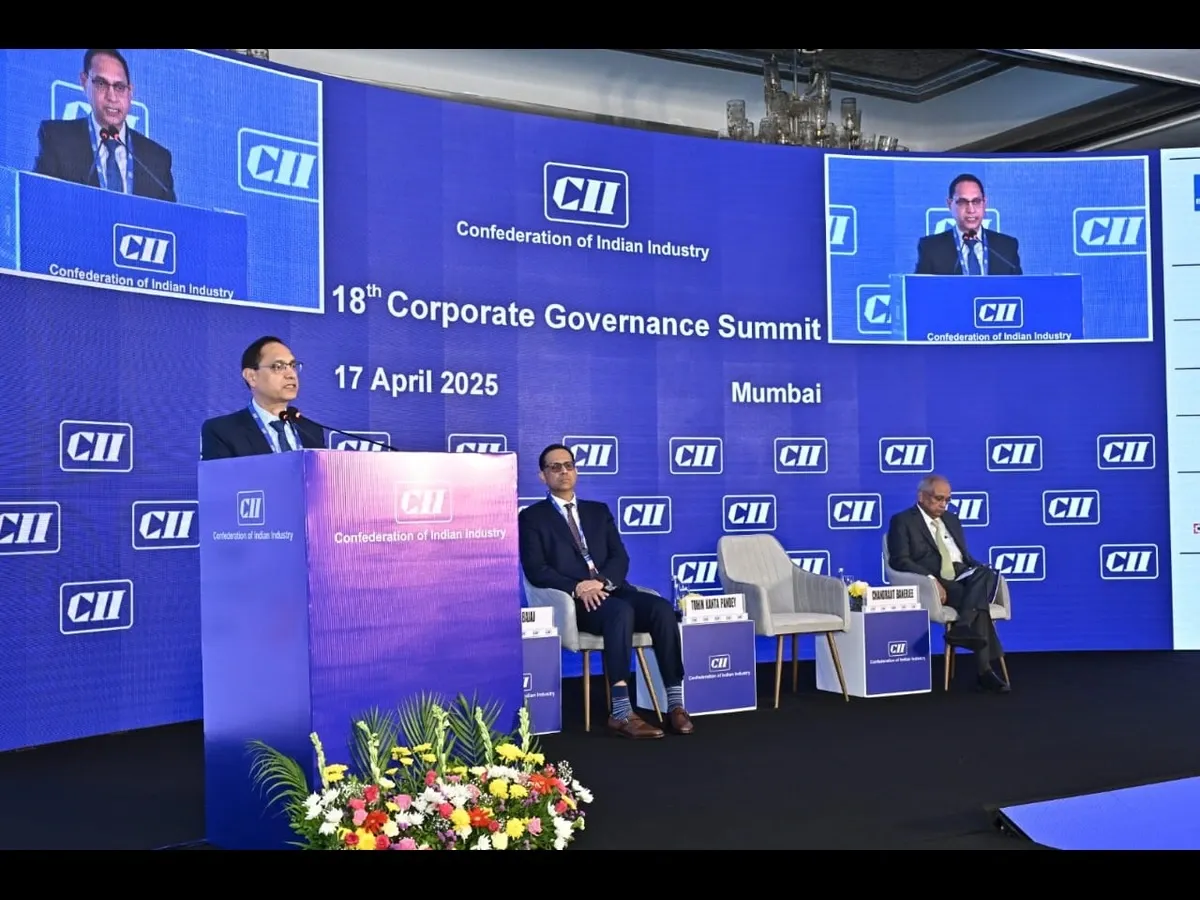Market News
SEBI chief on NSE IPO: Won't allow commercial interest to trump general public interest
.png)
2 min read | Updated on April 17, 2025, 16:24 IST
SUMMARY
SEBI chairman Tuhin Kanta Pandey stressed that the National Stock Exchange's (NSE) long-pending IPO will not proceed at the cost of public interest.

SEBI chairman addressing the CII Corporate Governance Summit in Mumbai.
Markets regulator SEBI will ensure that commercial interests do not override the general public interest while considering the long-awaited IPO of the National Stock Exchange (NSE), its chairman Tuhin Kanta Pandey said on Thursday.
"We will not allow commercial interest to take over the general public interest, and it is for the regulator to ensure that," Pandey told reporters on the sidelines of the 18th CII Corporate Governance Summit held in Mumbai.
The comments come amid renewed interest in the NSE's listing plans, which have been pending for over eight years.
The exchange had earlier this year approached SEBI for a no-objection to proceed with its initial public offering.
Pandey clarified that while India has adopted a model where exchanges can operate as commercial or for-profit entities, the regulator's primary responsibility remains to safeguard the interests of the general public.
It is also the regulator’s job to resolve any friction between exchanges, the SEBI chief added.
It will be done at the earliest, he said, without providing a specific timeline for resolution.
The regulator has formed an internal committee to review the IPO proposal and has sought resolution of several pending issues. According to reports, SEBI’s concerns include the compensation structure for key management personnel and NSE’s majority stake in Clearing Corporation.
Addressing the summit earlier in the day, Pandey emphasised that governance in capital markets is not about ticking boxes, but about building a culture of ethical conduct and accountability.
"Corporate governance is not a matter of regulation alone. It's a matter of conscience," Pandey said, underlining that the regulator will continue to raise the bar for governance, but “true and lasting change must come from within the corporate boardrooms and cultures.”
He urged companies to transition from "minimum compliance to maximum governance", and called on boards to take responsibility by asking the right questions and constructively challenging management.
"It's not an easy path as it involves sacrificing some short-term gains. But it is the only path to sustainable growth and development of a company," Pandey said.
He also highlighted the growing role of technology in regulatory compliance, and encouraged the industry to adopt RegTech solutions–the use of technology based solutions for complying with regulatory obligations–to improve transparency, efficiency, and oversight.
About The Author
Next Story

